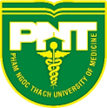When it comes to navigating the complex world of healthcare, having a solid understanding of health literacy is essential. Health literacy refers to an individual’s ability to obtain, process, and understand basic health information and services. It plays a crucial role in empowering patients to make informed decisions about their health, effectively communicate with healthcare providers, and ultimately improve their overall well-being.
The Impact of Limited Health Literacy
Unfortunately, limited health literacy is a widespread issue that affects individuals of all backgrounds and education levels. Studies have shown that individuals with low health literacy are more likely to have poor health outcomes, higher rates of hospitalization, and increased healthcare costs. Limited health literacy can lead to medication errors, missed appointments, and a lack of understanding about preventive care measures.
Moreover, limited health literacy can exacerbate health disparities and inequalities. Certain populations, such as the elderly, immigrants, and those with lower socioeconomic status, are more vulnerable to low health literacy. These individuals may face additional barriers, such as language barriers, cultural differences, and limited access to healthcare resources.
The Role of Healthcare Providers
Healthcare providers play a pivotal role in addressing health literacy challenges and improving patient outcomes. By using clear and concise language, avoiding medical jargon, and providing written materials in plain language, healthcare providers can enhance patient understanding. Effective communication is key to ensuring that patients are well-informed about their conditions, treatment options, and necessary lifestyle changes.
Additionally, healthcare providers can implement strategies to assess and improve health literacy levels among their patient populations. This can include conducting health literacy screenings, providing educational materials in multiple languages, and offering support services to individuals with limited health literacy. By tailoring their approach to meet the specific needs of each patient, healthcare providers can bridge the health literacy gap and promote better health outcomes.
The Role of the Healthcare System
While healthcare providers play a vital role, addressing health literacy requires a comprehensive approach from the healthcare system as a whole. Policies and initiatives should be in place to promote health literacy education, improve access to healthcare resources, and enhance patient-provider communication.
Healthcare organizations can invest in creating easily understandable educational materials, utilizing digital platforms to disseminate information, and providing resources for patients to access reliable health information. Collaborations between healthcare providers, community organizations, and educational institutions can also help raise awareness about the importance of health literacy and provide resources to improve it.
Empowering Patients through Health Literacy
By promoting health literacy, we can empower patients to take an active role in their healthcare journey. When patients have the knowledge and skills to understand their health conditions, navigate the healthcare system, and make informed decisions, they become partners in their own care. This leads to improved health outcomes, reduced healthcare costs, and a more efficient healthcare system overall.
Furthermore, health literacy also extends beyond individual patients. It encompasses the ability of communities to understand and act upon health information. By fostering health literacy at a community level, we can create a culture of health and well-being that benefits everyone.
Conclusion
Health literacy is a critical component of a well-functioning healthcare system. It empowers patients, improves communication between healthcare providers and patients, and reduces health disparities. By prioritizing and investing in health literacy initiatives, we can create a healthcare system that is more accessible, equitable, and effective for all.
